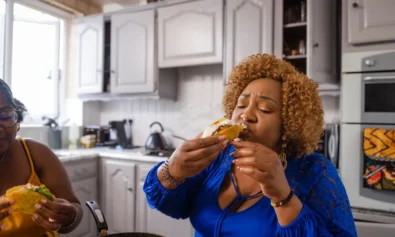NEW YORK – At the time when the state Appeals Court is considering whether to reinstate Mayor Michael Bloomberg’s ban on large sugary drinks in restaurants, sports arenas and theaters, a study by the Mailman School of Public Health at Columbia University released Wednesday challenges criticism from the opponents of the soda ban who say it would disproportionately target the poor.
“Our study shows that the soda ban would not hit the poor people, but rather overweight children and adults,” said Dr. Claire Wang, a lead author of the study.
Wang and Seanna Vine from Columbia University’s Mailman School of Public Health looked at which demographic groups would be affected by the ban on large sugary drinks. They analyzed records from nutrition surveys filled out by more than 19,000 children and adults across the country from 2007 to 2010 who every day reported what they had consumed the previous day.
The researchers found that just more than 7 percent of the kids and adults who reported buying sugary drinks larger than 16 ounces actually bought them at a food service establishment.
The study didn’t find any correlation between the level of income and consumption of sugary drinks. Even though Americans with incomes 130 percent below the poverty line (who are eligible for food stamps) generally consumed more large sugary drinks than those with higher incomes, those below the poverty line bought large sugary drinks in restaurants, theaters and stadiums in equal proportion to those with higher incomes.
More obese or overweight young people bought sugary drinks in portions larger than 16 ounces than did children and adults of normal weight.
The study provides evidence that New York needs the soda ban legislation to restrict consumption of large sugary drinks, said Dr. Thomas Farley, New York City Health commissioner.
“The new study shows that our portion-cap rule will likely lead to a decrease in calories consumed, especially among the people who need the help the most—obese and overweight youth,” he said in a statement.
The soda ban was struck down in an eleventh hour decision by the New York State Supreme Court in March. The court ruled that the Department of Health didn’t have the authority to enact a ban and that the rules would arbitrarily apply to some businesses but not others.
The research adds to the number of papers supporting Bloomberg’s soda ban but offers little help to the city as it seeks to reinstate one of the mayor’s key pieces of health legislation.


